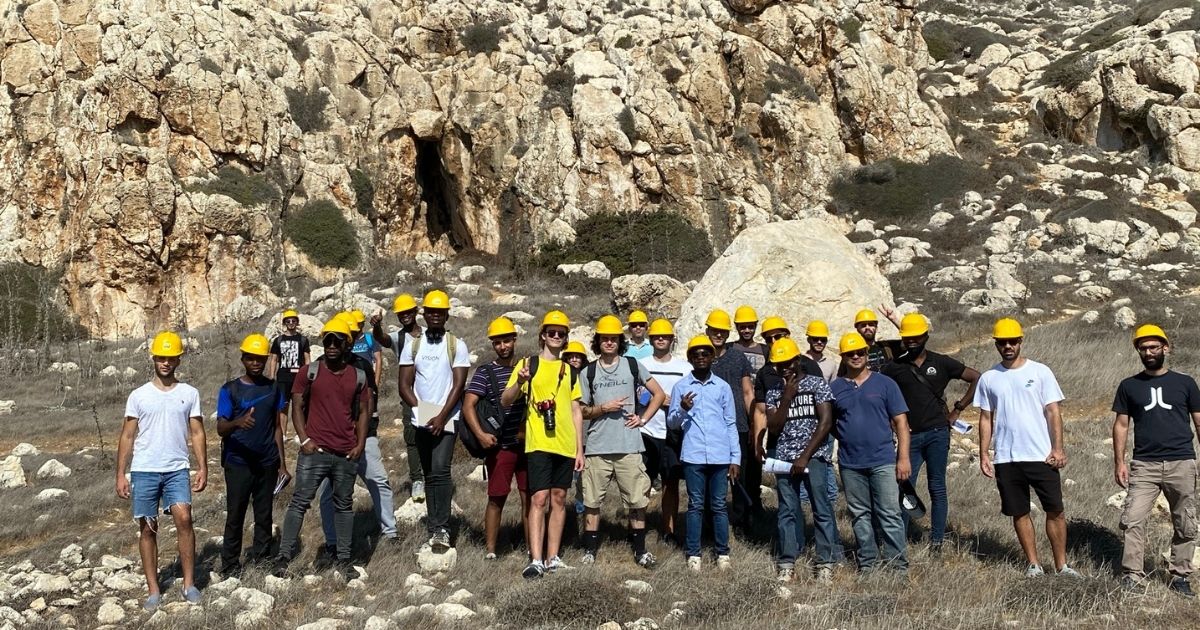Department of Engineering students explored the sedimentary rocks of south-eastern Cyprus
On Saturday, 16 October, 40 students as well as several faculty members on the Oil, Gas and Energy Engineering programme of the Department of Engineering ran a geological fieldtrip to closely examine the sedimentary rocks of south-eastern Cyprus, including key reservoir units for hydrocarbon and water resources. These include: Miocene reefs from Cape Greco, analogue for the offshore exploration targets of recent large discoveries, including Zohr and Calypso.
The students also examined the Messinian gypsum deposits, which represent seal rocks for petroleum and water (aquifer) systems. Lastly, the fieldtrip included a visit to the Salt Lake of Larnaca, which is a precious present-day example of a sedimentary system for the seasonal deposition of siliciclastic and evaporite rocks. This gave the visiting team a chance to better appreciate the precarious balance between tectonics, climate and human activities that lies behind the working of similar natural depositional systems.
The fieldtrip represented a dynamic hands-on experience for the students, in line with the Department’s focus on providing practical education.

